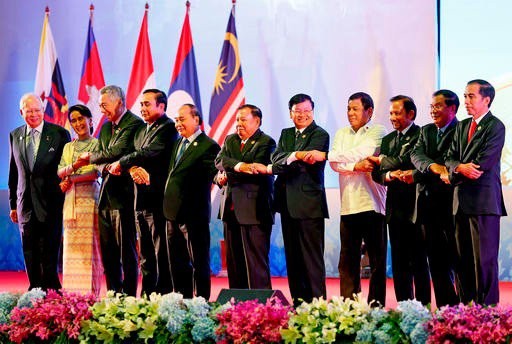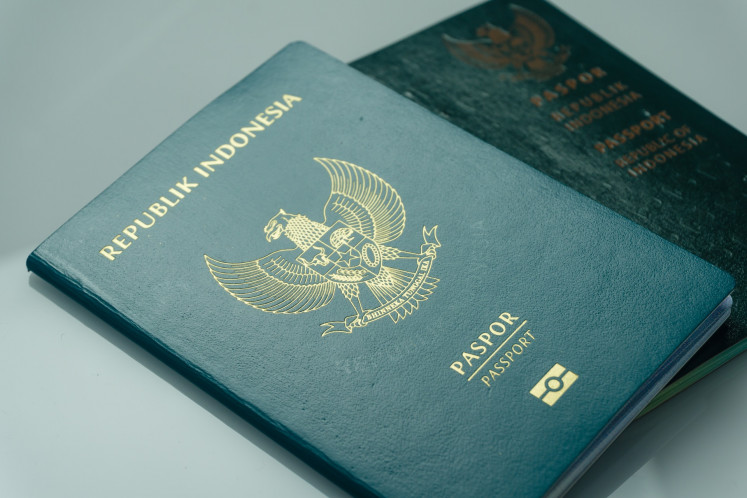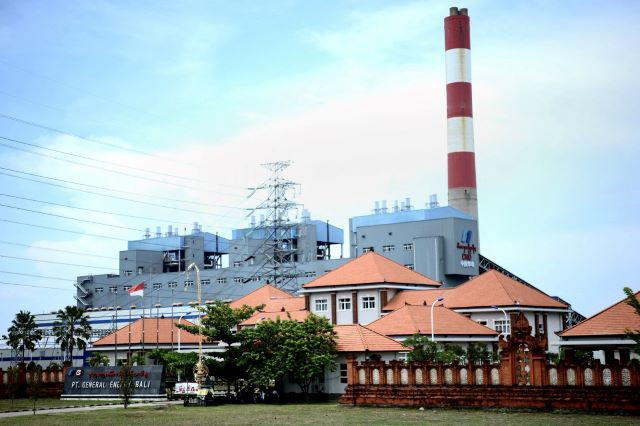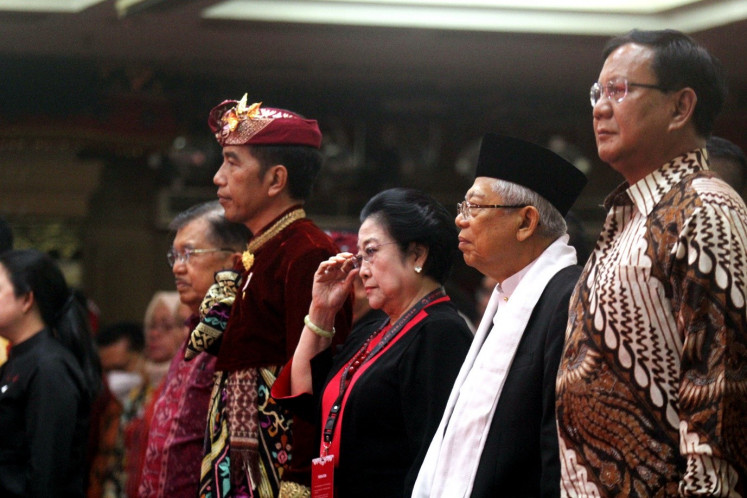Indonesia urged to make use of available opportunities
Change Size
 Southeast Asian leaders link arms at the opening of the 28th and 29th ASEAN Summits and other related summits in the National Convention Center on Sept. 6, 2016 in Vientiane, Laos. (AP/Bullit Marquez)
Southeast Asian leaders link arms at the opening of the 28th and 29th ASEAN Summits and other related summits in the National Convention Center on Sept. 6, 2016 in Vientiane, Laos. (AP/Bullit Marquez)
I
ndonesia needs to make the best of its foreign policy stances in the year ahead despite all the recent unsettling developments, a discussion of Indonesian foreign policy concluded on Tuesday.
This is all the more necessary with United States President Donald Trump signaling a particular shift in US interests away from Southeast Asia.
For Philips Vermonte, executive director of the Centre for Strategic and International Studies (CSIS), there is a need for Indonesia to push the maritime agenda in ASEAN to stem the rise of China in a region that will lose its geopolitical balance if the US makes an exit.
ASEAN, Philips argued, was currently split between two halves: one side, “mainland ASEAN”, enjoys direct linkages with China as infrastructure projects occur more readily than in “maritime ASEAN”, where they have remained contentious and slow due to the South China Sea (SCS) dispute.
China, and several ASEAN member states, have competing claims in the SCS, causing tensions in a region that would prefer not to become a dueling arena for major powers.
But as the largest trading nation and second-largest economy in the world, China stands to benefit more if it connects mainland ASEAN, particularly from the Mekong region down to the Malaysian peninsula, than if it reinforces maritime connectivity, Philips said.
“I think it is more important [now] for Indonesia to push its maritime agenda, which will also involve China. If we fail to do that, ASEAN will tilt toward the mainland,” he told the discussion.
China has been peddling its One Belt, One Road (OBOR) initiative, an ambitious plan to connect Asia-Pacific with the Indian Ocean all the way to Africa, at once linking most of China’s business interests.
The Philippines, also part of maritime ASEAN, currently chairs ASEAN in its 50th year of existence. Both countries will have an immense interest in ensuring the successful formulation and implementation of the Code of Conduct (COC) in the SCS, with negotiations starting next month.
Dinna Wisnu of Paramadina University, also believed Indonesia should make the best of current circumstances, particularly on Asia’s dilemma with Trump.
“In 2017, the US will be too busy domestically, not only to calm down the street [protests] but also to accelerate income generation,” she said.
“With infrastructure [...] being his main project, [Trump] will need more income, mostly from oil and coal. He will start to realize that handling China alone will be too high a cost, especially for US coal production.”
Trump won the US presidential election on an inward-looking, “America First” campaign platform that signaled a non-interventionist policy stance. The new US administration has yet to formulate any policies, but US Ambassador to Indonesia Joseph Donovan has insisted that US-Indonesian ties will resume as usual.
In light of a possible escalation of tensions between Washington and Beijing, the international relations expert said Indonesia needed to start diversifying its sources of economic growth.
Dinna said Indonesia should intensify business-to-business and people-to-people relations while making sure to build forward linkages to maximize on existing economic deals, which can be achieved through ASEAN.
Dewi Fortuna Anwar, another international relations expert and speaker, but who is attached to the government, said that Indonesia’s foreign policy stance was not simply to hedge between the US and China, but was omnidirectional by nature.
“What’s important for Indonesia is that it is not subordinated. The Global Maritime Fulcrum is not a subordination of the OBOR idea; we support it if it works and complements ours,” she said.









